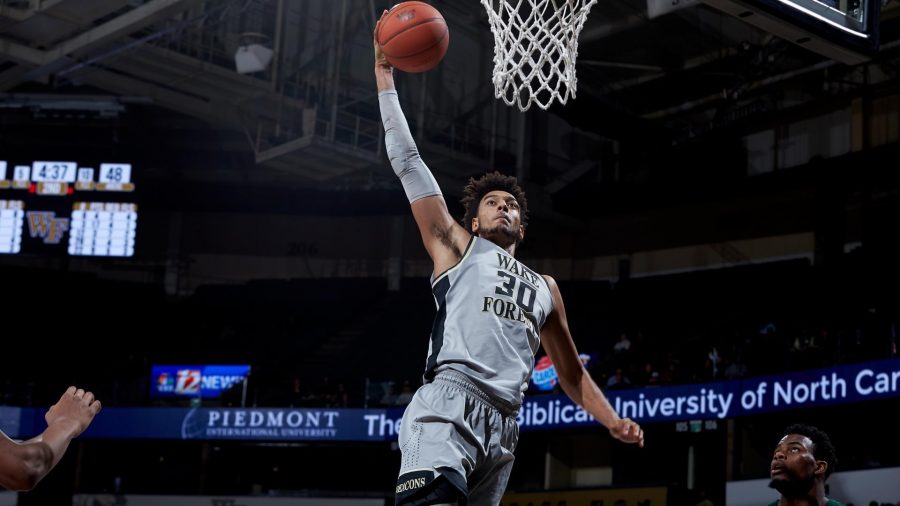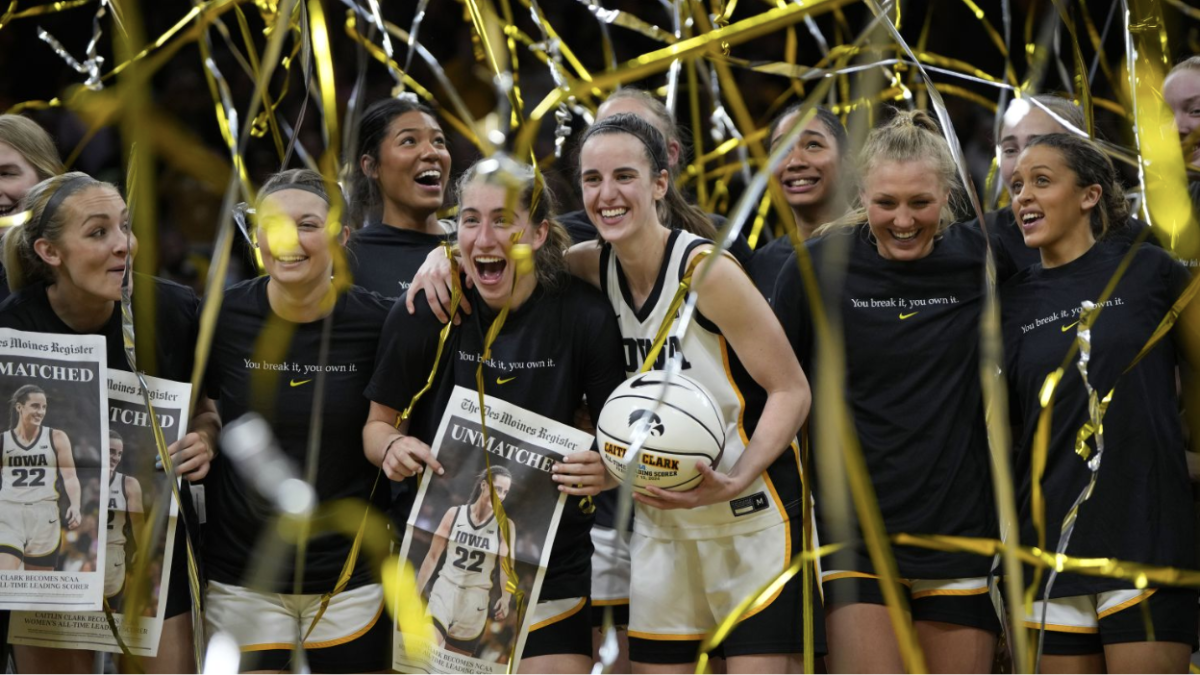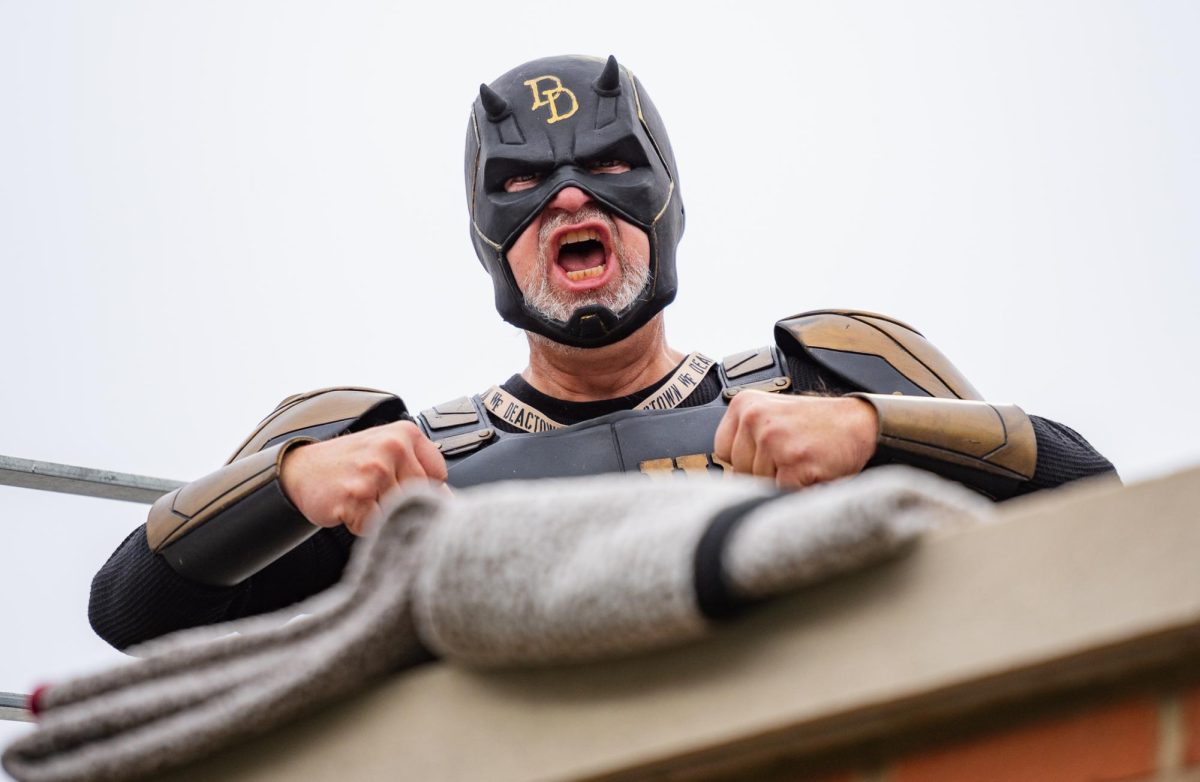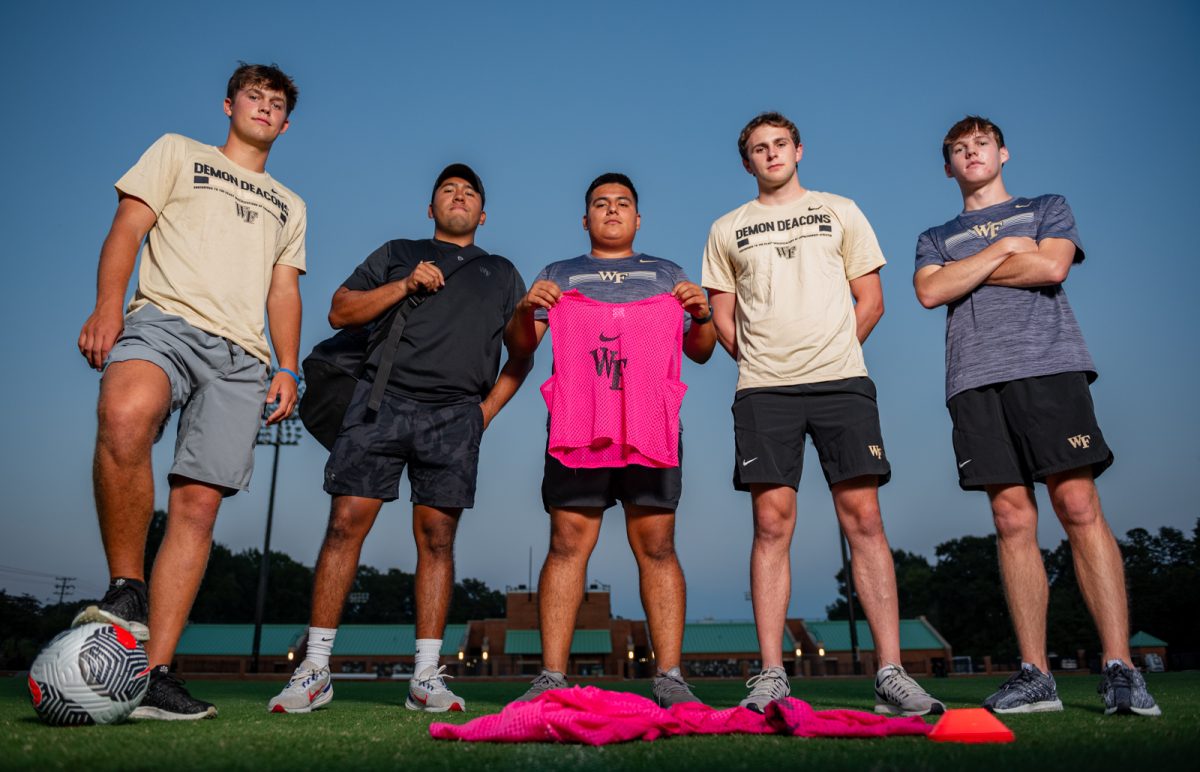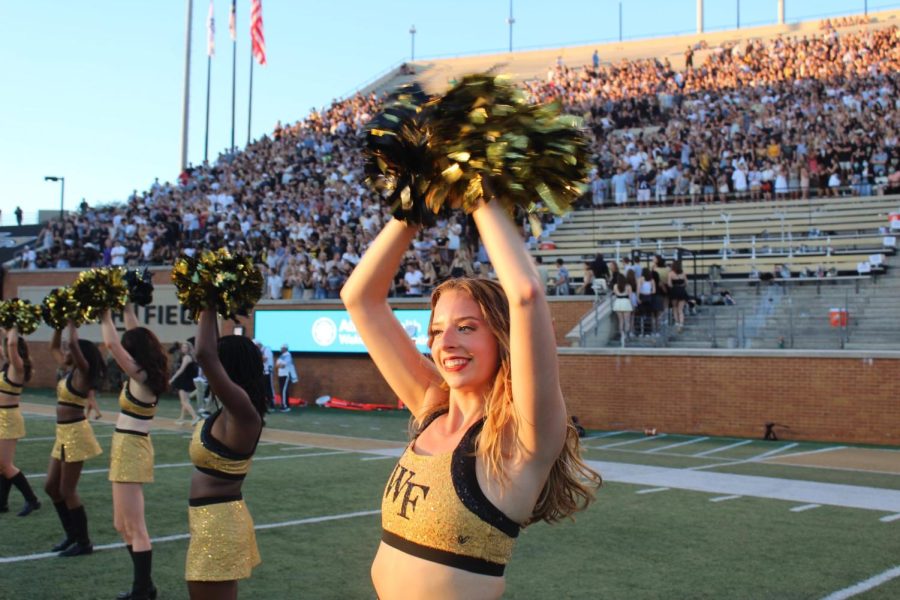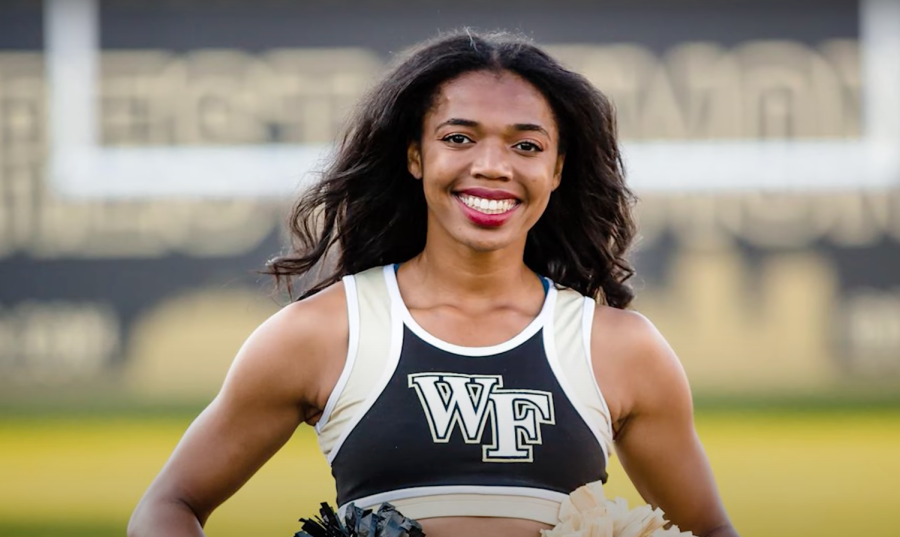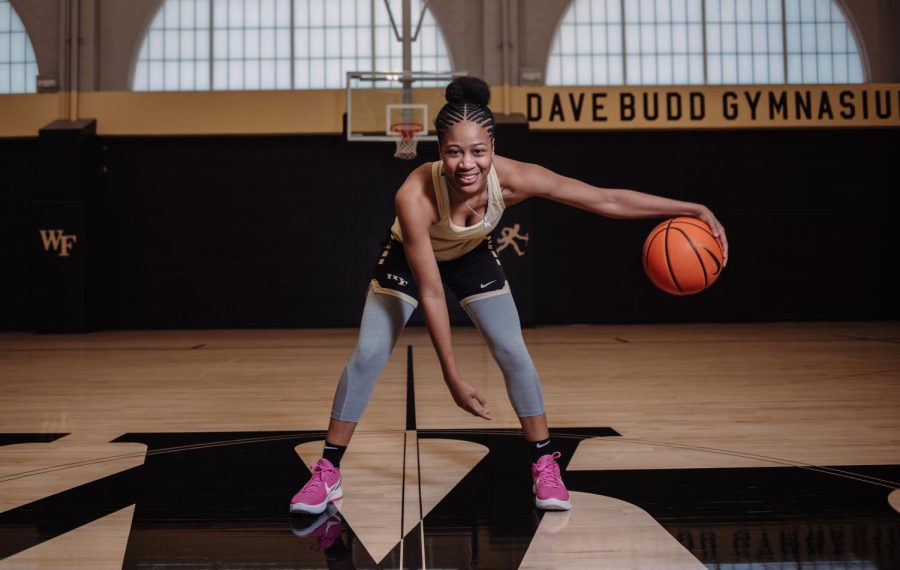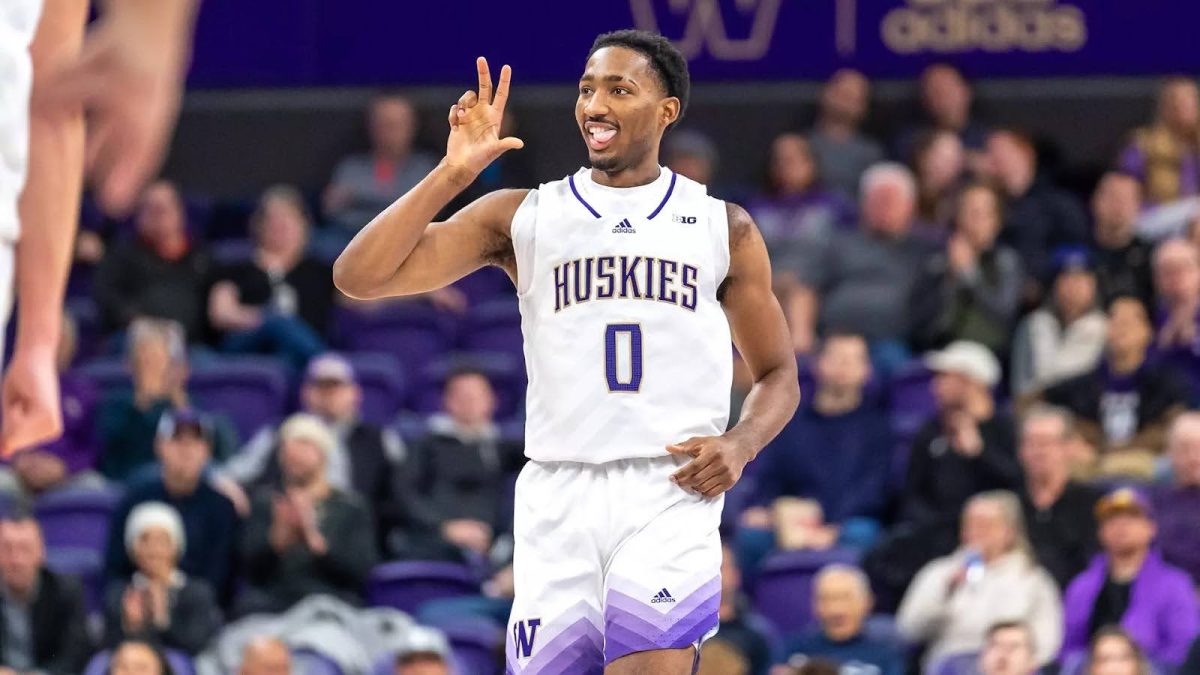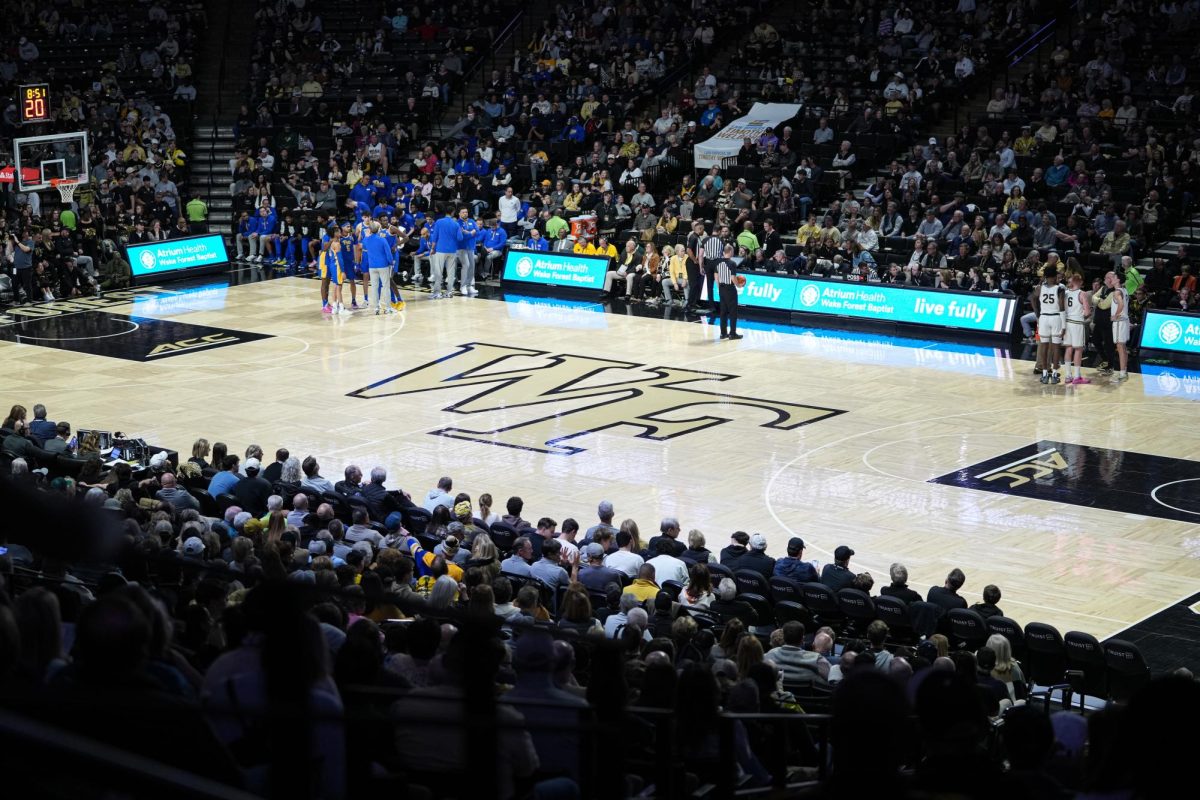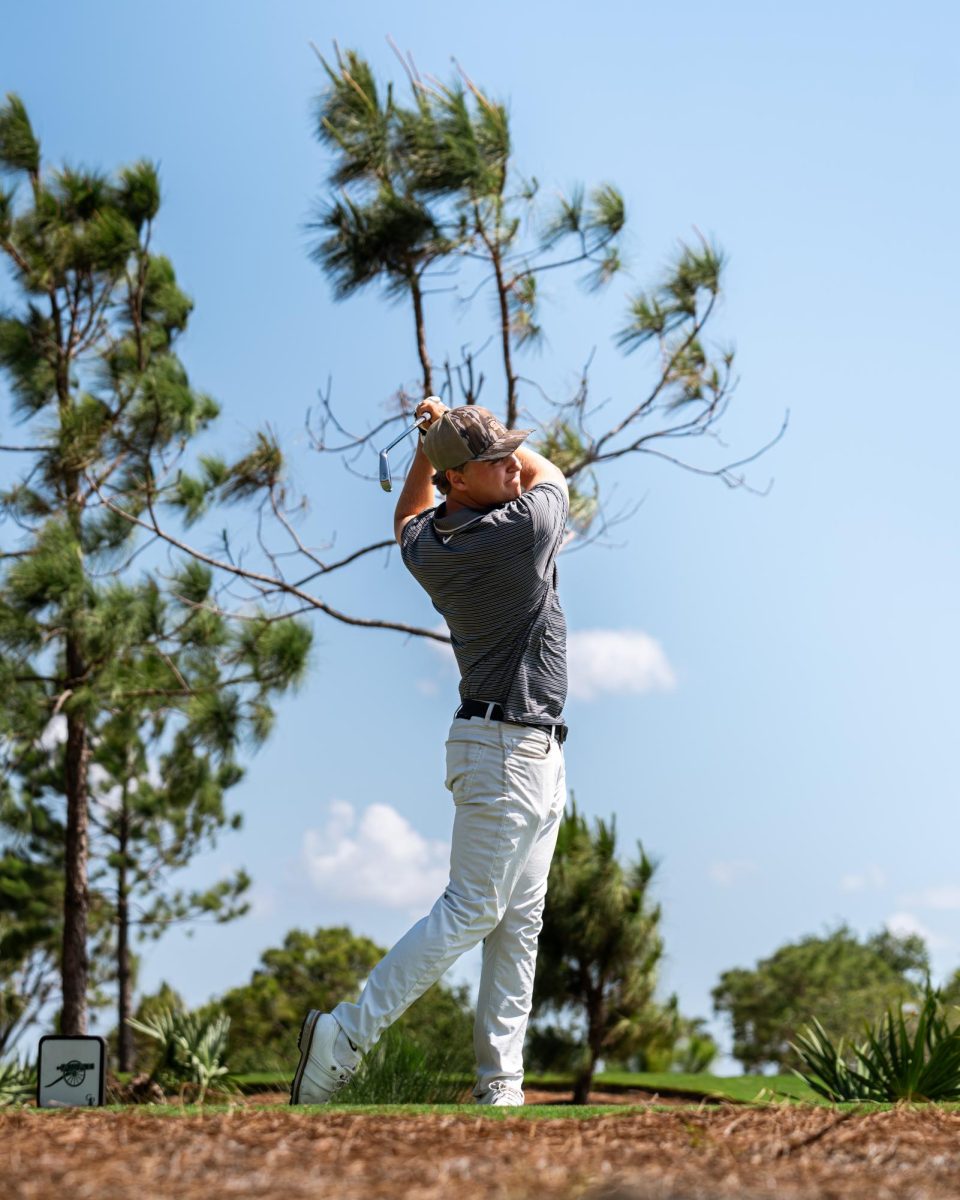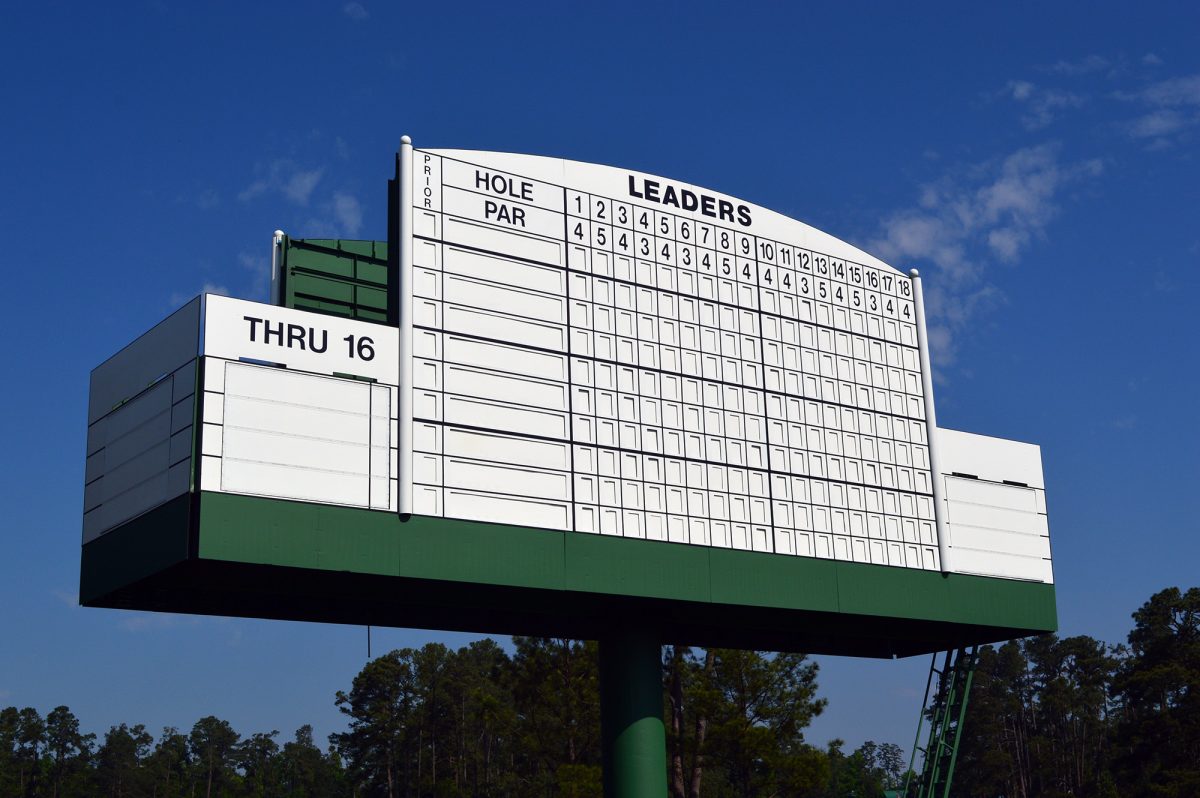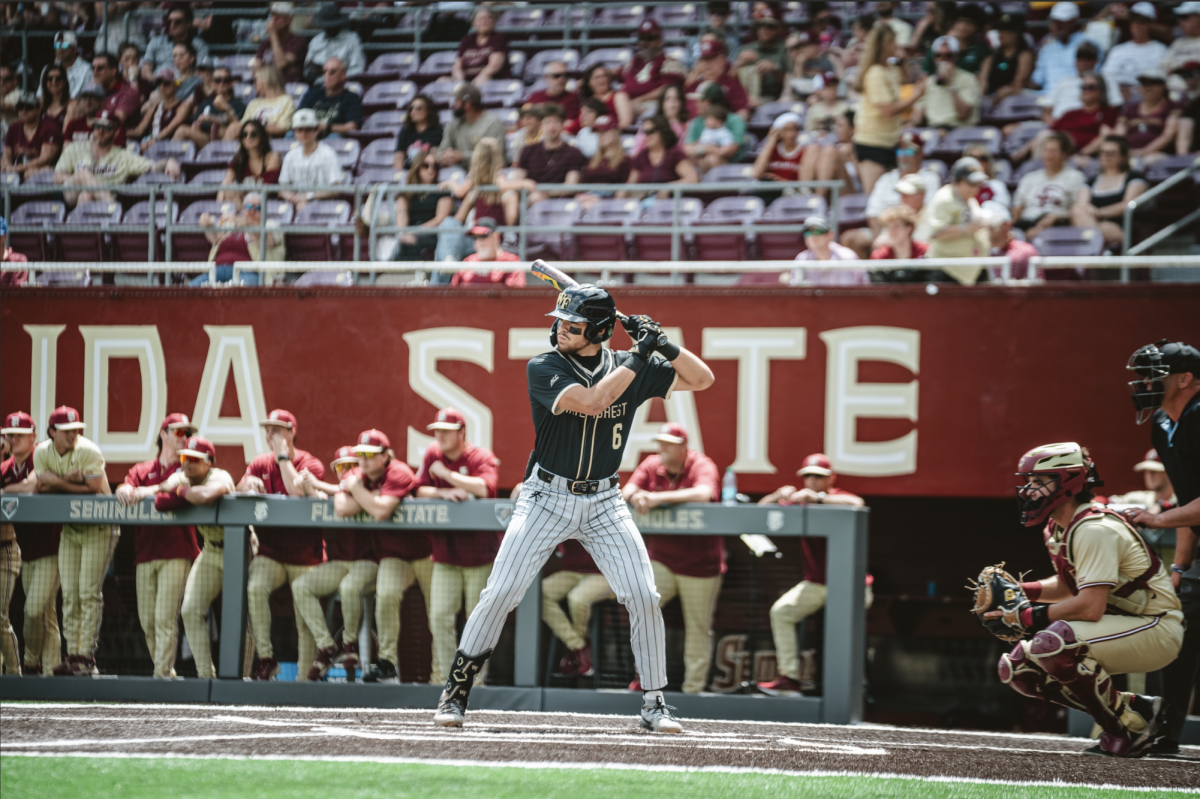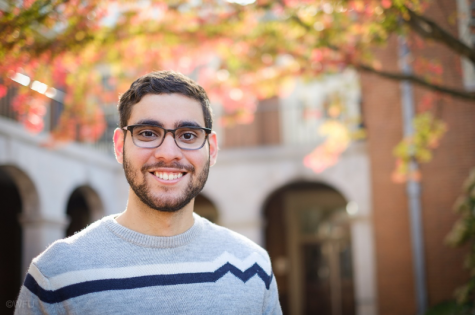Standing at around 7 feet tall and with a French accent, Olivier Sarr’s presence is easily noticeable on campus. Hailing from Toulouse, France, Sarr first came to the United States when he was 15 years old to develop his basketball skills. Sarr was ranked as a four-star recruit by Rivals coming out of INSEP, France’s National Institute of Sports. In 2017, he committed to Wake Forest over offers from UC-Berkley, UCF and Vanderbilt. Sarr has represented France in the 2016 U-17 World Championship and the 2017 FIBA U-18 European Championship. Sarr has endured some rough stretches over his first two seasons at Wake Forest. Collectivelly, the Demon Deacons have not had a winning season in men’s basketball since going to the NCAA Tournament in 2016-17. Sarr is ready to turn the tides for the men’s basketball program in 2019-20 and make his presence felt on the court.
Rafael Lima: How was it to come from a different country, perhaps a different basketball culture, to play in Winston-Salem, N.C.?
Olivier Sarr: My freshman year was kind of like my discovery year and getting used to everything. Even the language, speaking [English] in the locker room, I couldn’t speak well with my teammates. You know when you learn a language in school? You learn the basic stuff. You don’t learn the slang and the way people talk [in the United States]. So, it was kind of hard at first, but then my teammates took care of me. They really welcomed me. I was part of the family.
RL: What are some of the differences between playing for the French National Team and playing Division I college basketball in the United States?
OS: Oh, playing with the [French] National Team is a completely different thing than playing in college. Here, you have athletes everywhere. Everybody is physically ready. You can’t be better than other guys [in the United States] just because you jump higher than them. Everybody jumps high in here; everybody runs fast. So, it’s really different. Here is more like [focused on the] individual, I would say, than in Europe where they have a system-led [approach]. In Europe is more of [a focus on] a system, in here it is more about the players.
RL: Despite the recent adversity, the basketball team seems to have a really close bond. You all have a lot of guys that hang together off the court. What do you do whenever you’re not on a basketball court?
OS: Yeah, this plays a big role for us [on the court]. Our cohesion and our chemistry is really good. Everybody gets along with everybody. We go to the Pit together all the time. After practice, we go to our house altogether and play some [NBA] 2K or whatever. We just have fun with each other. That helps us on the court too. When you’re that close and you know you have something to say to a teammate, like criticism, he’s not going to take it the bad way.
RL: You mentioned how much you had to adjust coming into the United States How much do you think your game has changed over your first two season in here?
OS: I would say my game changed [as] I changed physically. I gained 50 pounds. I’m able to do stuff that I couldn’t do before physically. Just like, going to the paint, finishing with contact, being more aggressive, grabbing a rebound — literally every aspect of the game [changed].
RL: Is there anything you would like people to know about the men’s basketball team that they might not know on a surface level?
OS: The thing I want people to know is that everybody in this team is dedicated, committed and hard workers. We all want to win. It was hard these past few years, and I know some fans are disappointed. They are probably [thinking about] not coming to our games anymore. But, we’re just working. We’re doing everything it takes to win game after game after game, and we’ll see where this takes us at the end of the season.



